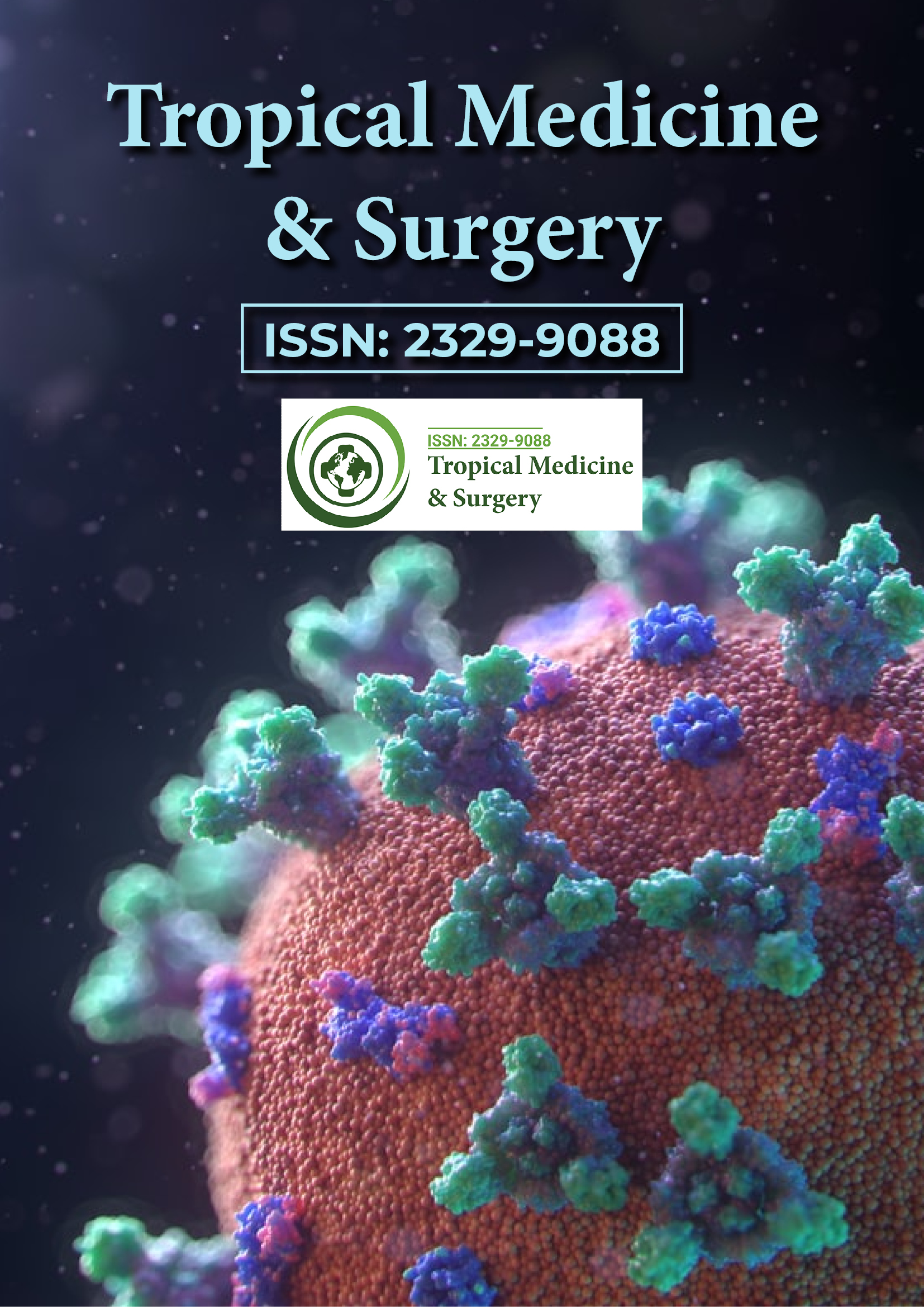Indexed In
- Open J Gate
- Academic Keys
- RefSeek
- Hamdard University
- EBSCO A-Z
- OCLC- WorldCat
- Publons
- Euro Pub
- Google Scholar
Useful Links
Share This Page
Journal Flyer

Open Access Journals
- Agri and Aquaculture
- Biochemistry
- Bioinformatics & Systems Biology
- Business & Management
- Chemistry
- Clinical Sciences
- Engineering
- Food & Nutrition
- General Science
- Genetics & Molecular Biology
- Immunology & Microbiology
- Medical Sciences
- Neuroscience & Psychology
- Nursing & Health Care
- Pharmaceutical Sciences
Opinion Article - (2023) Volume 11, Issue 1
The Role of Agro Medicine in Preventing and Controlling Infectious Diseases
Priscila Xuan*Received: 10-Jan-2023, Manuscript No. TPMS-23-20644; Editor assigned: 13-Jan-2023, Pre QC No. TPMS-23-20644(PQ); Reviewed: 27-Jan-2023, QC No. TPMS-23-20644; Revised: 03-Feb-2023, Manuscript No. TPMS-23-20644(R); Published: 10-Feb-2023, DOI: 10.35248/2329-9088.23.11.288
Description
Agro medicine is a field that focuses on the intersection between agriculture and medicine. It encompasses a wide range of issues, including occupational health and safety, environmental health, and the impact of agricultural practices on public health. One area of particular concern for agromedicine is emerging infectious diseases, which are illnesses caused by pathogens that are new to a population or have recently increased in incidence or geographic range. These diseases are often zoonotic, meaning they are transmitted from animals to humans, and can have devastating consequences for both human and animal health.
One of the main drivers of emerging infectious diseases is the increasing globalization of trade and travel. As people and goods move across borders, so do pathogens. For example, the recent outbreak of the Ebola virus in West Africa was traced to the handling of infected bush meat. The spread of avian influenza is another example of how global trade and travel can lead to the emergence of new diseases. The virus is carried by migratory birds, which can then infect domestic poultry and humans. Agriculture also plays a significant role in the emergence of infectious diseases. As human populations grow and demand for food increases, farmers are forced to intensify their operations to meet the needs of a growing population. This can lead to increased contact between humans and animals, which in turn increases the risk of zoonotic diseases. For example, the outbreak of the H1N1 influenza virus in 2009 was traced to a pig farm in Mexico. The virus is thought to have originated in pigs and then jumped to humans.
Another factor contributing to the emergence of infectious diseases is climate change. As temperatures rise, the geographic range of many pathogens expands, increasing the likelihood of human exposure. For example, the spread of Lyme disease in the northeastern United States of America has been linked to changes in climate that have allowed the ticks that transmit the disease to expand their range. Agro medicine can play an important role in preventing and controlling emerging infectious diseases. One key strategy is to improve the health of agricultural workers. This can be done through education and training on safe work practices, as well as through the use of personal protective equipment such as gloves and masks. By reducing the risk of exposure to pathogens, agricultural workers can help prevent the spread of disease.
Another strategy is to improve the health of animals. This can be done through vaccination programs, improved animal husbandry practices, and the use of antimicrobial agents to treat and prevent disease. By reducing the prevalence of disease in animals, the risk of transmission to humans can be reduced. Finally, aeromedicine can play a role in reducing the impact of climate change on the emergence of infectious diseases. This can be done through the development of sustainable agricultural practices that reduce greenhouse gas emissions and protect biodiversity. By reducing the environmental impact of agriculture, the risk of climate change-induced emergence of infectious diseases can be reduced.
In conclusion, agro medicine is an important field that focuses on the intersection of agriculture and medicine. Emerging infectious diseases are a major concern for agro medicine, as they can have devastating consequences for both human and animal health. By improving the health of agricultural workers and animals, and by reducing the impact of climate change on the emergence of infectious diseases, agro medicine can play a vital role in preventing and controlling these diseases. As global trade and travel continue to increase, and as climate change continues to impact the planet, the importance of agro medicine in preventing the emergence of infectious diseases will only continue to grow.
Citation: Xuan P (2023) The Role of Agro medicine in Preventing and controlling infectious diseases. Trop Med Surg.11:288.
Copyright: © 2023 Xuan P. This is an open-access article distributed under the terms of the Creative Commons Attribution License, which permits unrestricted use, distribution, and reproduction in any medium, provided the original author and source are credited.
